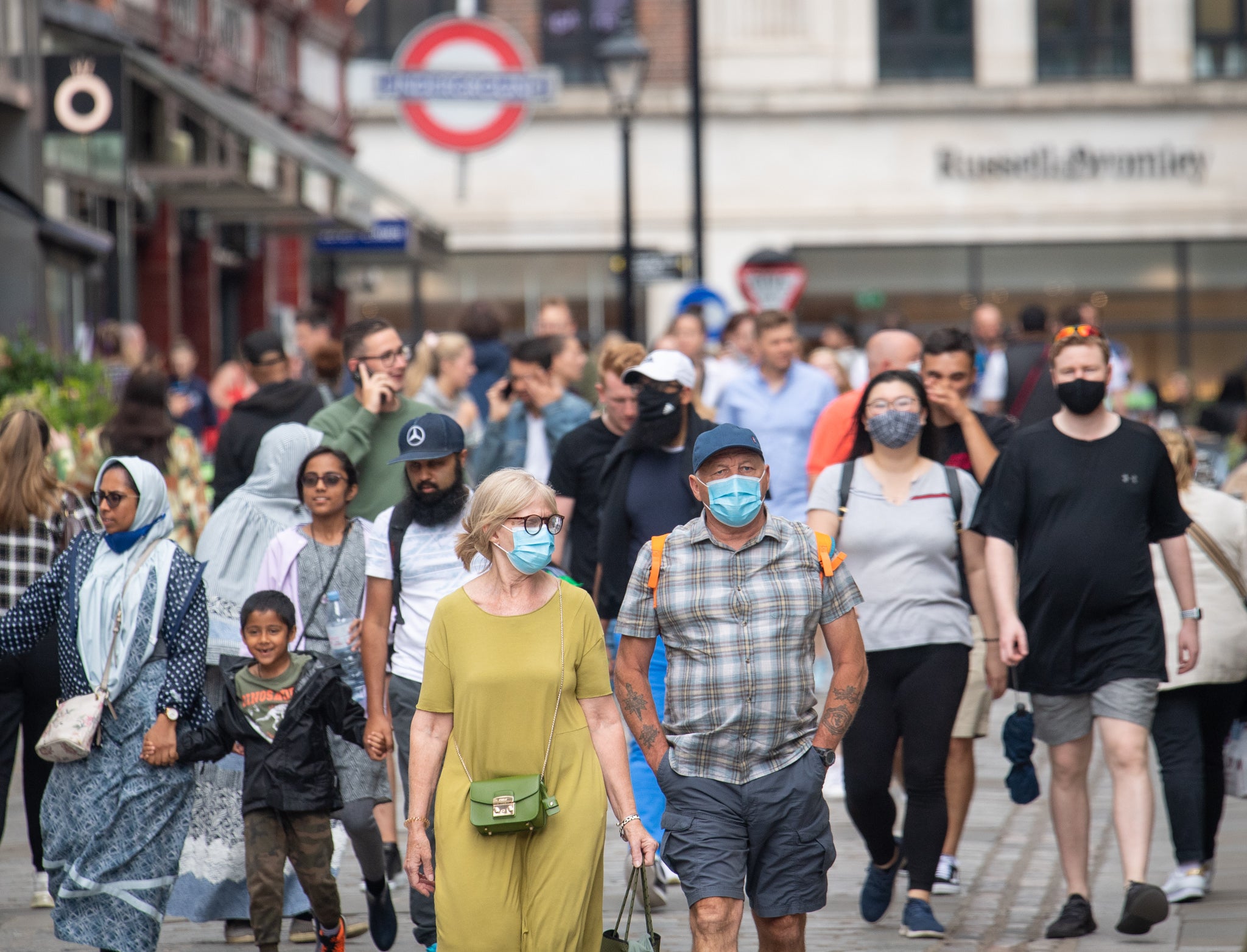Lifting rules will have disproportionate impact on vulnerable, Sage warns
The Scientific Advisory Group for Emergencies has put forward suggestions to the government to mitigate the Covid spread as restrictions are removed.

Your support helps us to tell the story
From reproductive rights to climate change to Big Tech, The Independent is on the ground when the story is developing. Whether it's investigating the financials of Elon Musk's pro-Trump PAC or producing our latest documentary, 'The A Word', which shines a light on the American women fighting for reproductive rights, we know how important it is to parse out the facts from the messaging.
At such a critical moment in US history, we need reporters on the ground. Your donation allows us to keep sending journalists to speak to both sides of the story.
The Independent is trusted by Americans across the entire political spectrum. And unlike many other quality news outlets, we choose not to lock Americans out of our reporting and analysis with paywalls. We believe quality journalism should be available to everyone, paid for by those who can afford it.
Your support makes all the difference.Lifting all restrictions will have a “disproportionate impact” on vulnerable people, experts from the Scientific Advisory Group for Emergencies (Sage) have warned.
Boris Johnson told MPs this week that he expects to end all restrictions, including the requirement to self-isolate following a positive test, this month – weeks earlier than scheduled.
But Sage experts say the Government should take various actions that could help protect the vulnerable as well as mitigate the general spread of Covid-19 when rules are eased.
In minutes from the group’s meeting on Thursday, members warned: “Increased ambiguity about a requirement to self-isolate upon testing positive will also disproportionately impact vulnerable sections of the population.”
They also raised concerns about the consequences of removing access to free testing and called for “clear and consistent” messaging to the public about the ongoing risks.
The group said getting rid of free testing would make it harder for people to take precautions and “may also increase anxiety among those who have found testing reassuring after possible exposure, particularly those who are or live with someone who is clinically vulnerable”.
“Some people may also take the removal of free and accessible testing as a signal that they should continue to attend workplaces/social gatherings while showing Covid-19 symptoms, as these become conflated with other symptoms of respiratory illness such as influenza,” the group added.
In response to this, Sage suggested the Government should take “various proactive measures” to address the culture of “presenteeism” at work, including encouraging people to work from home when unwell and providing “adequate” sick pay for employees.
The group also emphasised the importance of public messaging as a way to reduce the impact.
“Lifting of restrictions should be accompanied with clear and consistent messaging about the scientific rationale and continued benefit of protective behaviours to reduce transmission,” Sage said.
Public messaging should also be employed “to stress the different needs and risk appetites of others,” it added.
“This should help to improve understanding of the continued need and adoption of protective behaviours by different groups and reduce the risk of social tensions, abusive incidents and stigma towards minority groups,” the group said.
Sage also suggested that health authorities should take over the responsibility of public messaging, based on studies that show people have higher confidence in experts and are less likely to follow rules if trust in a government is low.
“This could improve adherence but is dependent upon consistency across organisations, including central government,” it said.
Covid restrictions had been due to expire on March 24, but Mr Johnson told MPs he expects they can end a month sooner if the data continues to be encouraging.
It means in just over two weeks England could be returned to levels of freedom enjoyed before the pandemic, for the first time since restrictions were brought in almost two years ago.